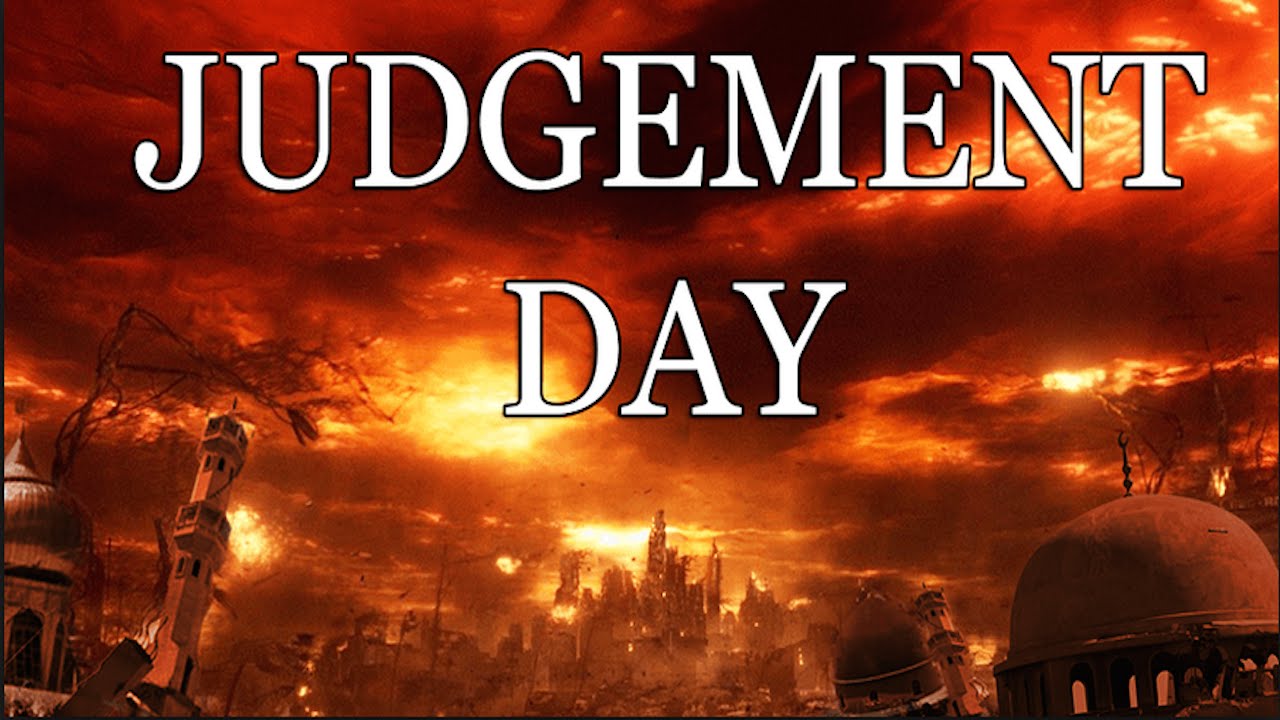QUESTION:
What do the ‘Ulamā’ say regarding the entry of the disbelievers into Jahannam. Will all disbelievers enter into it and are the Christians and Jews of this day and age regarded as disbelievers? Secondly, what is the verdict concerning those disbelievers to whom the message of Islām has reached but not in the form that Islām is a beautiful way of life, rather they have received the notion that Islām is a religion which teaches terrorism. If such disbelievers do not embrace Islām, will they attain salvation and is it valid to put forward the book ‘Faysal al-Tafriqah’ as a proof in this matter?
Questioner: Khalid from UK
ANSWER:
بسم اللہ الرحمن الرحیم
الجواب بعون الملک الوھاب اللھم ھدایۃ الحق والصواب
All our books of ‘Aqā’id and all the ‘ulamā of the ummah agree upon this; that if any disbelievers die upon disbelief they will enter Jahannam eternally, forever. This is because no kufr (disbelief) will be forgiven. Apart from disbelief, all other sins are subject to the Divine Will of Allāh in that He will forgive them for whomsoever He chooses. Whosoever declares a disbeliever after his death to be a person of Jannah, or supplicates for him, or says that an apostate (murtad) is someone who has received mercy or forgiveness, then that person himself becomes a disbeliever.
The Jews and Christians of this era are definitely disbelievers and if they pass away and do not embrace Islām, they will enter Jahannam forever. This is because the message of Islām has reached them through the media and other means. Even though false, corrupted reports about Islām also reach them, this will not absolve them from having to embrace Islām.
Whichever disbelievers pass away upon kufr they will enter Jahannam forever eternally. My dear Muslims, your Lord the Most Generous says in the Qur’ān,
{اِنَّ الَّذِیۡنَ کَفَرُوۡا وَمَاتُوۡا وَہُمْ کُفَّارٌ فَلَنۡ یُّقْبَلَ مِنْ اَحَدِہِمۡ مِّلْءُ الۡاَرْضِ ذَہَبًا وَّلَوِافْتَدٰی بِہٖؕ اُولٰٓئِکَ لَہُمْ عَذَابٌ اَلِیۡمٌ وَّمَا لَہُمۡ مِّنۡ نّٰصِرِیۡنَ}
{Those who disbelieved and also died as disbelievers; any one of them giving the earth full of gold as ransom will never be accepted; for them is a painful punishment and they have no helper}
[Surah Āl ‘Imrān, verse 91]
It is further stated,
{اِنَّ الَّذِیۡنَ کَفَرُوۡا لَوْ اَنَّ لَہُمۡ مَّا فِی الۡاَرْضِ جَمِیۡعًا وَّ مِثْلَہٗ مَعَہٗ لِیَفْتَدُوۡا بِہٖ مِنْ عَذَابِ یَوْمِ الْقِیٰمَۃِ مَا تُقُبِّلَ مِنْہُمْ ۚ وَلَہُمْ عَذَابٌ اَلِیۡمٌ}
{Indeed, those who became disbelievers, if they owned all that is in the earth and further equal to it (twice as much), that having offered it as a ransom to save themselves from the punishment of the Day of Resurrection; so it will not be accepted from them, and for them is a painful punishment}
[Sūrah al-Mā’idah, verse 36]
Tafsīr Khazā’in al-‘Irfān states that the meaning is that punishment is binding for the disbelievers and there is no path of escape from this.
Allāh states in the Qur’ān the ruling regarding all disbelievers,
{وَ الَّذِیۡنَ کَفَرُوۡا لَہُمْ شَرَابٌ مِّنْ حَمِیۡمٍ وَّ عَذَابٌ اَلِیۡمٌۢ بِمَا کَانُوۡا یَکْفُرُوۡنَ}
{And for the disbelievers is boiling water to drink and a painful punishment; the recompense of their disbelief}
[Sūrah Yūnus, verse 4]
From these verses it is clear that all the disbelievers will enter the Fire and no disbeliever will be forgiven as Allāh states clearly,
{اِنَّ اللہَ لَا یَغْفِرُ اَنۡ یُّشْرَکَ بِہٖ وَیَغْفِرُ مَا دُوۡنَ ذٰلِکَ لِمَنۡ یَّشَآءُ}
{Undoubtedly, Allāh does not forgive polytheism, and forgives anything less than polytheism to whom He wills}
[Sūrah al-Nisā’, verse 48]
It should remain clear that what is meant by shirk here is kufr without exception as is mentioned in Tafsīrs (commentaries of the Holy Qur’ān]. It is mentioned in Tafsīr Rūh al-Bayān,
“لا یغفر الکفر ممن اتصف بہ بلا توبۃ وإیمان؛ لأنّ الحکمۃ التشریعیۃ مقتضیۃ لسدّ باب الکفر وجواز مغفرتہ بلا إیمان مما یؤدي إلی فتحہ فمن لم یکن لہ إیمان لم یغفر لہ شيء من الکفر والمعاصی”
“Allāh does not forgive the one characterised by shirk without his repentance and bringing about Īmān. This is because the legal wisdom necessitates closing the door of disbelief and the possibility of it being forgiven without bringing about Īmān is from that which opens the door to kufr. Thus, whosoever does not have Īmān, then nothing from disbelief and disobedience is forgiven for him.”
[Tafsīr Rūh al-Bayān, vol 2, pg 218]
In one place in Tafsīr Rūh al-Ma’ānī it is mentioned,
{والشرک یکون بمعنی اعتقاد أنّ للہ تعالی شأنہ شریکاً إما في الألوہیۃ أو في الربوبیۃ ، وبمعنی الکفر مطلقاً وہو المراد ہنا}
“Shirk is in the meaning of the belief that Allāh has a partner either in His Divinity or Lordship and it is in the meaning of kufr without exception, and that [i.e. the meaning of kufr] is what is intended here.”
[Tafsīr Rūh al-Ma’ānī vol 5 pg 48]
It is mentioned in ‘Umdah al-Qārī’,
“المراد بالشرک في ہذہ الآیۃ الکفر؛ لأنّ من جحد نبوۃ محمد صلی اللہ علیہ وسلم مثلاً کان کافراً ولو لم یجعل مع اللہ إلھاً آخر والمغفرۃ منتفیۃ عنہ بلا خلاف”
“The intended meaning of shirk in this ayah is kufr because whoever, for example, denied the Prophethood of the Prophet Muhammad (may the peace and blessings of Allāh be upon him) is a kāfir, even if he did not associate a partner with Allāh. Forgiveness is negated in relation to such a person without any difference of opinion.
[‘Umdah al-Qārī sharh Sahīh al-Bukhārī, vol 1, pg 305]
It is mentioned in the relied upon ‘Aqā’id work of the Muslims, Sharh al-‘Aqā’id al-Nasafiyyah with the notes of ‘Isām al-Dīn,
{الشرک باللہ المراد مطلق الکفر وإلاّ لورد أنواع الکفر غیرہ}
“Shirk with Allāh – the intended meaning is kufr without exception.”
[Sharh al-‘Aqā’id al-Nasafiyyah, pg 107-108, with the notes of ‘Isām al-Din, vol 2, pg 218]
It is mentioned in Bahār-e-Sharī’at that deeming Muslims as Muslims and disbelievers as disbelievers is from Darūriyāt al-Dīn (that which is necessarily known from the Dīn). Even though one cannot have certainty about the ending of a specific person upon Īmān or, we seek refuge with Allāh, upon disbelief, unless there is evidence from the Sharī’ah about the state of his ending, however this does not mean that the kufr of a person who did something which is definitely kufr should be doubted. This is because doubting in the disbelief of a definite disbeliever causes a person to become a disbeliever himself.
[Bahār-e-Sharī’at, vol 1, part 1, pg 185]
The Christians and Jews of this day and age are disbelievers
There is agreement upon the Christians and Jews of today being disbelievers as the Jews of this day and age hold Sayyidunā ‘Uzayr (may the peace of Allāh be upon him) and the Christians hold Sayyidunā ‘Isā (may the peace of Allāh be upon him) to be the sons of Allāh (Almighty). The Christians also believe in the doctrine of the trinity which itself is clear kufr. Further to this, the denial of our Noble Prophet Muhammad (may the peace and blessings of Allāh be upon him) is clear kufr and believing in him (may the peace and blessings of Allāh be upon him) is the greatest of obligations upon every Jew and Christian.
My dear Muslims,, your Lord states in the Qur’ān,
{لَقَدْ کَفَرَ الَّذِیۡنَ قَالُوۡۤا اِنَّ اللہَ ثَالِثُ ثَلٰثَۃٍ ۘ وَمَا مِنْ اِلٰہٍ اِلَّاۤ اِلٰہٌ وّٰحِدٌ ؕ وَ اِنۡ لَّمْ یَنۡتَہُوۡا عَمَّا یَقُوۡلُوۡنَ لَیَمَسَّنَّ الَّذِیۡنَ کَفَرُوۡا مِنْہُمْ عَذَابٌ اَلِیۡمٌ}
}They are certainly disbelievers who say, “Indeed Allāh is the third from amongst the three gods.” Whereas there is no god except the One God (Allāh), and if they do not abstain from what they are saying, undoubtedly a painful punishment will reach those amongst them who will die as disbelievers}
[Sūrah al-Mā’idah, verse 73]
Allāh Almighty also states,
{وَقَالَتِ الْیَہُوۡدُ عُزَیۡرُۨ ابْنُ اللہِ وَقَالَتِ النَّصٰرَی الْمَسِیۡحُ ابْنُ اللہِ ؕ ذٰلِکَ قَوْلُہُمۡ بِاَفْوٰہِہِمْ ۚ یُضَاہِـُٔوۡنَ قَوْلَ الَّذِیۡنَ کَفَرُوۡا مِنۡ قَبْلُ ؕ قٰتَلَہُمُ اللہُ ۚ اَنّٰی یُؤْفَکُوۡنَ}
{And the Jews said, “Uzair is the son of Allāh,” and the Christians said, “The Messiah is the son of Allāh.” They blurter these statements from their own mouths; they replicate the saying of the former disbelievers; may Allah destroy them. To where are they returning?}
[Sūrah at-Tawbah, verse 30]
It is necessary for every person to believe in the Chosen Prophet Muhammad (may the peace and blessings of Allāh be upon him)
Whoever does not consider a disbeliever to be a disbeliever is himself a disbeliever. Imām Qādī ‘Iyād (may Allāh sanctify his secret) says in the noble ‘al-Shifā’,
“الإجماع علی کفر من لم یکفر أحداً من النصاری والیہود و کلّ من فارق دین المسلمین أو وقف فی تکفیرھم أو شک، قال القاضي أبو بکر: لأن التوقیف والإجماع اتفقا علی کفرھم فمن وقف فی ذلک فقد کذب النص والتوقیف أو شک فیہ، والتکذیب والشک فیہ لا یقع إلا من کافر”
“There is ijmā’ (consensus) upon the disbelief of the one who does not deem someone from the Christians and Jews as a disbeliever and everyone who leaves Islām, or hesitates in declaring them disbelievers or doubts in their disbelief. al-Qādī Abū Bakr [al-Bāqillānī] said ‘Because the Sharī’ah texts and consensus (ijmā’) concur upon their disbelief so whosoever hesitates in that has denied the Sharī’ah texts or doubted them and doubt and denial of these does not come except from a disbeliever.’”
It is also mentioned in ‘al-Shifā’ that,
“كفر من لم یکفر من دان بغیر ملۃ الإسلام أو وقف فیھم أو شک أو صحح مذھبھم وإن أظھر الإسلام واعتقد إبطال کل مذھب سواہ فھو کافر بإظھار ما أظھر من خلاف ذلک، اھ ملخصاً”
“The person who does not declare the one following a religion other than Islām as a disbeliever, or hesitates or doubts in his being a disbeliever or declares that false religion as being correct, has himself disbelieved, even if he outwardly manifests Islām and believes all religions other than it to be false. He is a disbeliever by manifesting that which opposes this.”
[Fatāwā Ridawiyyah, vol 15, pg 443-444]
Whosoever even doubts in the punishment of a disbeliever is himself a disbeliever as is mentioned in al-Durr al-Mukhtār,
“من شک فی عذابہ وکفرہ فقد کفر”
“Whosoever doubts in his disbelief and his punishment then he has indeed disbelieved himself.”
[al-Durr al-Mukhtār, vol 4, pg 356-357]
After the coming of the Noble Prophet Muhammad (may the peace and blessings of Allāh be upon him) it is necessary for each and every person to believe in him (may the peace and blessings of Allāh be upon him). Even if a Jew or Christian does not commit the shirk of believing Sayyiduna Isā or Sayyiduna ‘Uzayr (may the peace of Allāh be upon them both) to be a son of Allāh, but he does not believe with a complete heart and mind in the Seal of the Prophets, the Beloved of Allāh, the Chosen one Muhammad (may the peace and blessings of Allāh be upon him), he is still a disbeliever. This is because rejection of even one Prophet is disbelief so why will the rejection of the Leader of the Prophets (may the peace and blessings of Allāh be upon him) not be so, indeed it will necessarily be of the greatest of kufrs.
My dear Muslims, it has come in a Sahīh Hadīth that the Muslims have wholeheartedly accepted that our Master the Noble Prophet Muhammad (may the peace and blessings of Allāh be upon him) said,
“وَالَّذِى نَفْسُ مُحَمَّدٍ بِيَدِهِ لاَ يَسْمَعُ بِى أَحَدٌ مِنْ هَذِهِ الأُمَّةِ يَهُودِىٌّ وَلاَ نَصْرَانِىٌّ ثُمَّ يَمُوتُ وَلَمْ يُؤْمِنْ بِالَّذِى أُرْسِلْتُ بِهِ إِلاَّ كَانَ مِنْ أَصْحَابِ النَّارِ“
“Oath by the One in Whose Power lies the soul of Muhammad, no one from this ummah hears of me, Jew or Christian, then he dies without believing in what I was sent with except that he is from the people of the Fire.”
[Sahīh Muslim, no 153]
O’ Muslims, look how clearly this authentic Hadīth is stating that whoever from the Jews or Christians hears of the Messenger (may the peace and blessings of Allāh be upon him) and then dies not having believed in him (may the peace and blessings of Allāh be upon him), then that person will definitely enter the Fire. From this it becomes known that after hearing about the Prophethood and Messengership of the Noble Prophet (may the peace and blessings of Allāh be upon him) it is absolutely definitely necessary for every non-Muslim to believe in the Noble Prophet (may the peace and blessings of Allāh be upon him) in order to enter Jannah, otherwise without this belief Jahannam is the only abode.
[Look at its commentary in Mirqāh sharh Mishkāh by Mullā ‘Alī Qārī]
The Messenger of Allāh (may the peace and blessings of Allāh be upon him) said,
“كل أمتي يدخلون الجنة إلا من أبى، قيل: ومن يأبى يا رسول الله؟ قال: من أطاعني دخل الجنة، ومن عصاني فقد أبى”
“‘All my ummah will enter Jannah except the one who refuses.’ It was said ‘and who refuses O Messenger of Allāh?’ He said, ‘Whoever obeys me enters Jannah and whoever disobeys me has indeed refused.”
[Sahīh al-Bukhārī, no 7280]
These two Blessed Hadīths and numerous others are also proof against the one who is a misguided and misguiding self professed spiritual leader. He sells himself for some small fame and utters such nonsense that the Jews and Christians of today will enter Jannah, even if they do not embrace Islām because Islām is presented before them as a religion of terrorism. We seek refuge with Allah from that! – In which Hadīth is this mentioned and from where is it established?! Allāh forbid! Did a new revelation begin to descend in America that goes against the clear texts of the Qur’ān and Sunnah?!
The Hadīth has mentioned this much, that after hearing about the Nubuwwah of the Prophet Muhammad (may the peace and blessings of Allāh be upon him), whoever does not embrace Islām he is certainly a person of the Fire. This matter has, in this time, reached the entire world and Allāh’s proof has been established. So if a Jew or Christian, despite this, does not believe in Allāh and His Messenger (may the peace and blessings of Allāh be upon him), how will he enter Jannah?
Some people in this matter try to take as evidence the statement of al-Imām al-Ghazzālī (may Allāh shower him with mercy). The statement and its reply will now be presented.
The statement of al-Imām al-Ghazzālī (may Allāh shower him with mercy) from Faysal al-Tafriqah
Mentioning the three categories of the disbelievers whom the call of Islām has not reached he says,
“صنف لم یبلغھم اسم محمد صلی اللہ علیہ وآلہ وسلم اصلا فھم معذورون و صنف بلغھم اسمہ و نعتہ وماظہر علیہ من المعجزات وھم المجاورون لبلاد الاسلام و المخالطون لھم وھم الکفار الملحدون وصنف ثالث بین الدرجتین بلغ اسم محمد ولم یبلغھم نعتہ وصفتہ بل سمعوا ایضا منذ الصبا ان کذابا ملبسا اسمہ محمد ادعی النبوۃ کماسمع صبیاننا ان کذابا یقال لہ المقفع تحدّی بالنبوة کاذبافھولاء عندی فی معنی الصنف الاول”
“[1] A party for whom even the name of the Prophet Muhammad (may the peace and blessings of Allāh be upon him) never reached so these people are excused. [2] A party for who, the name, description and what manifested from the miracles of the Prophet Muhammad (may the peace and blessings of Allāh be upon him) reached them, they are those living adjacent to the lands of Islām and in contact with the Muslims and they are the disbelieving people. [3] A third party between the two poles to whom the name of the Prophet Muhammad (may the peace and blessings of Allāh be upon him) reached but his description, characteristics did not, So these according to me are in the meaning of the first party.”
[Faysal al-Tafriqah bayn al-Islām wa al-Zandaqah, pg 84]
It has been understood from the third category mentioned by al-Imām al-Ghazzālī (may Allāh shower mercy upon him) that if the news of the Prophethood of the Noble Prophet Muhammad (may the peace and blessings of Allāh be upon him) reached any Jew or Christian but it reached him with falsehood and was projected in a bad way (like the way Islām is being projected as a terrorist religion in our time), then if this person died clinging to his religion without embracing Islām, he will enter Jannah. We seek refuge with Allāh from that!
The Imām of the Ahl al-Sunnah Ahmad Ridā Khān (may Allāh shower mercy upon him) replying to the incorrect concept attributed to al-Imām al-Ghazzālī (may Allāh shower mercy upon him) states in al-Mustanad al-Mu’tamad,
“رحم مولانا الامام القاضی ورحمنابہ یوم القضاء والتقاضی اماالامام الغزالی فبریء عمافھم من کلامہ”
“May Allāh have mercy on our Master al-Imām al-Qādī [‘Iyād] and have mercy on us by virtue of him on the Day of Judgement, as for al-Imām al-Ghazzālī (may Allāh shower mercy upon him), then he is innocent of that which he understood from his statement.”
The first matter is that whatever has been incorrectly attributed to al-Imām al-Ghazzālī (may Allāh shower mercy upon him) based on his statement regarding “the third party” cannot be established from that statement itself.
Imām ibn Hajar al-Makkī (may Allāh shower mercy upon him) after mentioning al-Imām al-Ghazzālī’s (may Allāh shower mercy upon him) statement in al-Sawā’iq says this which is attributed to al-Imām al-Ghazzālī is falsehood because,
“وصرح الغزالی فی کتابہ ‘الاقتصاد’ بمایردہ وعبارتہ التی اشار الیھا المصنف علی تقدیرکونھا عبارتہ والا فقد دس علیہ فی کتبہ عبارات حسدالاتفیدمافھمہ المصنف ولاتقرب ماذکرہ”
“al-Imām al-Ghazzālī (may Allāh shower mercy upon him) clearly mentioned in his work ‘al-Iqtisād’ that which refutes this and the statement that the author indicates towards, if we are to suppose it is his actual statement, as statements have been maliciously inserted into his works out of envy, then the statement itself does not give the meaning that the author has understood from it, nor does it come close to it.”
He then mentions the statement of al-Imām al-Ghazzālī (may Allāh shower mercy upon him) that has been mentioned above,
“وصنف ثالث بین الدرجتین بلغ اسم محمد ولم یبلغھم مبعثہ ولاصفتہ بل سمعوا بہ۔۔فھولاء عندی فی معنی الصنف الاول”
“A third party between the two levels mentioned to whom the name of the Prophet Muhammad (may the peace and blessings of Allāh be upon him) reached but his description, characteristics and his sending forth as a Messenger did not, rather they learnt about him by hearsay. So these according to me are in the meaning of the first party.”
After this Imām ibn Hajar al-Makkī (may Allāh shower mercy upon him) says that if you investigate al-Imām al-Ghazzālī’s (may Allāh shower mercy upon him) statement you will find that he considered those people excused because the call of Islām did not reach them.
“وھذا لاینحو منحی ماذکرہ المصنف”
“And this is not in the way that author has mentioned.”
[al-Sawā’iq al-Muhriqah]
The Imām of the Ahl al-Sunnah Imām Ahmad Ridā Khān (may Allāh shower mercy upon him) further states that ‘Allāmah Khafājī has related in ‘Sharh Nasīm al-Riyād’ from ‘Sharh Jadīd’ that the author of the latter mentioned after Qādī ‘Iyād’s words,
“ھذا الکلام غیرسدید والغزالی برئ من مثلہ والذی فی کتابہ التفرقۃ خلافہ”
“This statement is not correct and Imām Ghazzālī is innocent from the likes of this and that which is in his book ‘al-Tafriqah’ is opposite to it.”
So how can such a thing be attributed to the Imām when there exists severe rejection from him upon it?
After this the Imām of the Ahl al-Sunnah Imām Ahmad Ridā Khān (may Allāh shower mercy upon him) relates that occurrence which is related in ‘Nasīm al-Riyād’ in which Sayyidunā Mūsā (may the peace of Allāh be upon him) asked Imām Ghazzalī a question and he replied with ten answers which shows the rank of Imām Ghazzālī in the court of the Messengers (may the peace of Allāh be upon them). He relates that it is further mentioned in ‘Nasīm al-Riyād’ that,
“وقدرای بعض المشائخ الغزالی بین یدی رسول اللہ صلی اللہ علیہ وآلہ وسلم یشکو من شخص طعن فیہ فامر رسول اللہ صلی اللہ علیہ وآلہ وسلم بضربہ بالسیاط فانتبۃ وبہ اثر الضرب و المہ”
“Some of the mashā’ikh saw Imam Ghazzālī before the Messenger of Allāh (may the peace and blessings of Allāh be upon him) complaining about a person criticising him so the Messenger of Allāh (may the peace and blessings of Allāh be upon him) ordered that the person be whipped, so that person awoke with the signs of whipping and its pain.”
[al-Mustanad al-Mu’tamad, pg 216]
Thus it is apparent from these statements that the statement attributed to Imām Ghazzālī (may Allāh shower mercy upon him) which has been put forward as an evidence isn’t actually his statement. His original statement has been distorted and a wrong meaning has been extracted from that.
A discerning glance at ‘Fasysal al-Tafriqah’
Why, in the very same book of Imām Ghazzālī (may Allāh shower mercy upon him), whose alleged statement has been used to put forward a newly fabricated belief, has the explicitly clear statement of the Imām been completely ignored? The statement in which he has emphatically affirmed that the Jews and Christians of the age are disbelievers. He states that kufr is the denial of the Messenger (may the peace and blessings of Allāh be upon him) in anything from that which he came with and Īmān is belief in everything he (may the peace and blessings of Allāh be upon him) came with. Thus the Jews and Christians are disbelievers because of their denial of the Messenger of Allāh (may the peace and blessings of Allāh be upon him).
[Faysal al-Tafriqah bayn al-Islām wa al-Zandaqah, pg 25]
Even if the impossible is supposed and Imām Ghazzālī made such a wrong statement, it is not imagined that a person of intellect would base his belief on a statement of the Imām going against the explicitly clear texts of the Qur’ān and Sunnah. Whereas the Qur’ān and Sunnah have explicitly closed every pathway other than Īmān upon the Noble Prophet Muhammad (may the peace and blessings of Allāh be upon him) and have explained the absolute universality of his Messengership. Then how can there be any room left for anyone to speak otherwise in this matter.
The Universality of the Messengership of the Noble Prophet (may the peace and blessings of Allāh be upon him)
It is necessary now for each and every non-Muslim to believe in the Noble Prophet (may the peace and blessings of Allāh be upon him) as his Messengership is universal. He (may the peace and blessings of Allāh be upon him) has been sent as a Prophet and Messenger not only to the Jews and Christians but in fact to all of creation.
“Say you (O Beloved), ‘O people! I am the Messenger of that Allāh towards you all”
[Surah al-A’rāf, verse 158]
This verse is proof of the universality of the Messengership of the Leader of creation, the Prophet Muhammad (may the peace and blessings of Allāh be upon him). He (may the peace and blessings of Allāh be upon him), is the Messenger to all creation and they are all his ummah. It is mentioned in al-Bukhārī,
“كَانَ النَّبِيُّ يُبْعَثُ إِلَى قَوْمِهِ خَاصَّةً وَبُعِثْتُ إِلَى النَّاسِ عَامَّةً“
“A Prophet would be sent to his people specifically and I have been sent to all mankind without any restrictions.”
[Sahīh al-Bukhārī, no 335]
He (may the peace and blessings of Allāh be upon him) also stated,
“كَانَ كُلُّ نَبِىٍّ يُبْعَثُ إِلَى قَوْمِهِ خَاصَّةً وَبُعِثْتُ إِلَى كُلِّ أَحْمَرَ وَأَسْوَدَ“
“Each Prophet was sent to his people specifically and I have been sent to every red and black [person].”
[Sahīh Muslim, no 521]
{وَمَاۤ اَرْسَلْنٰکَ اِلَّا کَآفَّۃً لِّلنَّاسِ}
{And O Beloved Prophet, We have not sent you except with such Prophet-hood that encompasses entire mankind}
[Sūrah Saba’, verse 28]
In Tafsīr ‘Khazā’in al-‘Irfān’ it is mentioned that it is learnt from this verse that the Messengership of the Leader of creation, the Prophet Muhammad (may the peace and blessings of Allāh be upon him) is universal and all of humankind is within its encirclement whether white or black, Arab or non-Arab, earlier or later. He (may the peace and blessings of Allāh be upon him) is the Messenger for all of them and they are all his ummah. The specific virtues of the Prophet Muhammad (may the peace and blessings of Allāh be upon him) are mentioned in Hadīths, one of which is his universal Messengership which includes all mankind and jinn. In summary, the Prophet Muhammad (may the peace and blessings of Allāh be upon him) is the Messenger for all creation and this rank is specific to him, which is established from many Qur’anic verses and Hadīths. The explanation of this has also passed at the beginning of Sūrah Furqān.
[Khāzin]
It is mentioned in Sahīh Muslim,
“وَأُرْسِلْتُ إِلَى الْخَلْقِ كَافَّةً وَخُتِمَ بِىَ النَّبِيُّونَ“
“I was sent to all creation and Prophethood was ended upon me.”
[Sahīh Muslim, no 526]
Islamic Sharī’ah abrogates all previous Sharī’ahs
Every Jew and Christian and every non-Muslim who follows the previous Sharī’ahs must accept Islām after its message reaches them because the Sharī’ah of the Beloved of Allāh, the Chosen One, the Prophet Muhammad (may the peace and blessings of Allāh be upon him) abrogates all the preceding Sharī’ahs, so apart from his Sharī’ah all others are abrogated. Their Dīn is Islām. Allāh has ordained Islām as the final Dīn,
{اَلْیَوْمَ اَکْمَلْتُ لَکُمْ دِیۡنَکُمْ وَاَتْمَمْتُ عَلَیۡکُمْ نِعْمَتِیۡ وَرَضِیۡتُ لَکُمُ الۡاِسْلٰمَ دِیۡنًا}
{Today I have perfected for you your religion and completed My favour upon you, and have chosen for you Islām as your religion}
[Sūrah al-Mā’idah, verse 3]
Note how Allāh (Most High) has clearly mentioned that He has chosen Islām as the way of life for all creation. This is the only way of life now; in it alone is salvation. Whosoever follows any other way of life after the coming of Islām is a definite dweller of the Fire as Allāh has mentioned,
{وَمَنۡ یَّبْتَغِ غَیۡرَ الۡاِسْلٰمِ دِیۡنًا فَلَنۡ یُّقْبَلَ مِنْہُۚ وَہُوَ فِی الۡاٰخِرَۃِ مِنَ الْخٰسِرِیۡنَ}
{And whosoever will desire a religion other than Islām, it will never be accepted from him; and he is amongst the losers in the Hereafter}
[Sūrah Āl ‘Imrān, verse 85]
It is known then, that after the coming of Islām there is no right for any Jew or Christian or any non-Muslim that he be a follower of any other way of life, and if he does so he is a confirmed dweller of the Fire.
An objection
It is mentioned in the Qur’ān,
{اِنَّ الَّذِیۡنَ اٰمَنُوۡا وَالَّذِیۡنَ ہَادُوۡا وَالنَّصٰرٰی وَالصّٰبِـِٕیۡنَ مَنْ اٰمَنَ بِاللہِ وَالْیَوْمِ الۡاٰخِرِ وَعَمِلَ صٰلِحًا فَلَہُمْ اَجْرُہُمْ عِنۡدَ رَبِّہِمْ ۪ۚ وَلَا خَوْفٌ عَلَیۡہِمْ وَلَا ہُمْ یَحْزَنُوۡنَ}
{Undoubtedly, amongst the believers, in addition the Jews, Christians and star worshippers (after abandoning their previous religions), those who have true faith in Allāh and in the Last Day (i.e. believing in complete Islamic faith) and do good deeds; their reward is with their Lord, and they shall have no fear nor any grief}
[Sūrah al-Baqarah, verse 62]
It is understood from this verse that the Jews and Christians by only believing in Allāh and doing righteous action necessarily attain to salvation and that believing in the Chosen One, the Prophet Muhammad (may the peace and blessings of Allāh be upon him) in order to attain salvation has not been mentioned here in this verse.
Answering the Objection.
The books of Asbāb al-Nuzūl (reasons of Revelation) are a witness to this noble verse being revealed concerning Sayyiduna Salmān al-Fārisī and his companions (may Allāh be pleased with them). Ibn Jarīr and ibn abī Hātim relate from Suddī that this verse was revealed in the right of the companions of Sayyiduna Salmān (may Allāh be pleased with him).
[Lubāb al-Nuqūl li Asbāb al-Nuzūl]
The question which should be answered is did they bring belief only in Allāh or did they believe in Allāh and His Messenger (may the peace and blessings of Allāh be upon him)?
Secondly, the belief in Allāh which is of consideration is that in which there is affirmation of the Messenger of Allāh, the Chosen One, the Prophet Muhammad Messenger (may the peace and blessings of Allāh be upon him), in fact affirmation of every necessary matter of belief. All the books of ‘Aqā’id are evidence for and witness to this. It is mentioned in them,
“فلا بد من الإيمان بالله الذي يستلزم تصديق رسله وخاتمهم محمد صلى الله عليه وسلم، فلم يقبل منهم الإيمان إلا بشرط وهو التصديق بما جاءت به الرسل“
“It is necessary to have Īmān in Allāh which necessitates affirmation of His Messengers and the final one of them Muhammad (may the peace and blessings of Allāh be upon them). Belief from the people will not be accepted except with a condition and that is affirmation of all that the Messengers came with.”
[Books of ‘Aqā’id]
Finally the Proof of Allāh is established now. The Book of Allāh is preserved, it has been translated and explained in all languages. Islām has spread and reached the closest and farthest parts of the world by electronic media, etc and no excuse remains for anyone from the perspective that Islām is famous and well known and does not require further teaching. It has been witnessed that it is the way of life of natural disposition that Allāh created people upon. So whoever does not follow Islām after hearing of it, he is from the people of the Fire, and whosoever Islām has not reached and he has not heard of it, he is like the people of the interim time periods between the coming of the Prophets (may the peace of Allāh be upon them all); Allāh will judge them however He wills.
واللہ تعالی اعلم ورسولہ اعلم صلی اللہ علیہ وآلہ وسلم
کتبہ ابو الحسن محمد قاسم ضیاء قادری
Answered by Mufti Qasim Zia al-Qadri
Translated by Mawlana Ibrar Shafi
Signatories:
Mufti Shams ul Huda Misbahi حفظه الله: this answer is correct.
Read the original Urdu answer here – [Q-ID0265] Will all Disbelievers of Islam enter Jahannam eternally?
Please also see:
[Q-ID0292] Which dua can we make and not make, for a non-Muslim?
[Q-ID0206] What is the fate of the insane non-Muslim?
[Q-ID0202] Will a non-Muslim child enter Jannah?
[Q-ID0186] Is it possible that the Prophet’s intercession will include the non-Muslims in Hell?
[Q-ID0138] Reciting the shahadah on behalf of someone who died as a disbeliever
Refutation of ‘The Study Quran’ by the Ulama of Zabid
[Q-ID0054] My non-Muslim neighbour passed away, can I attend his funeral?






















































